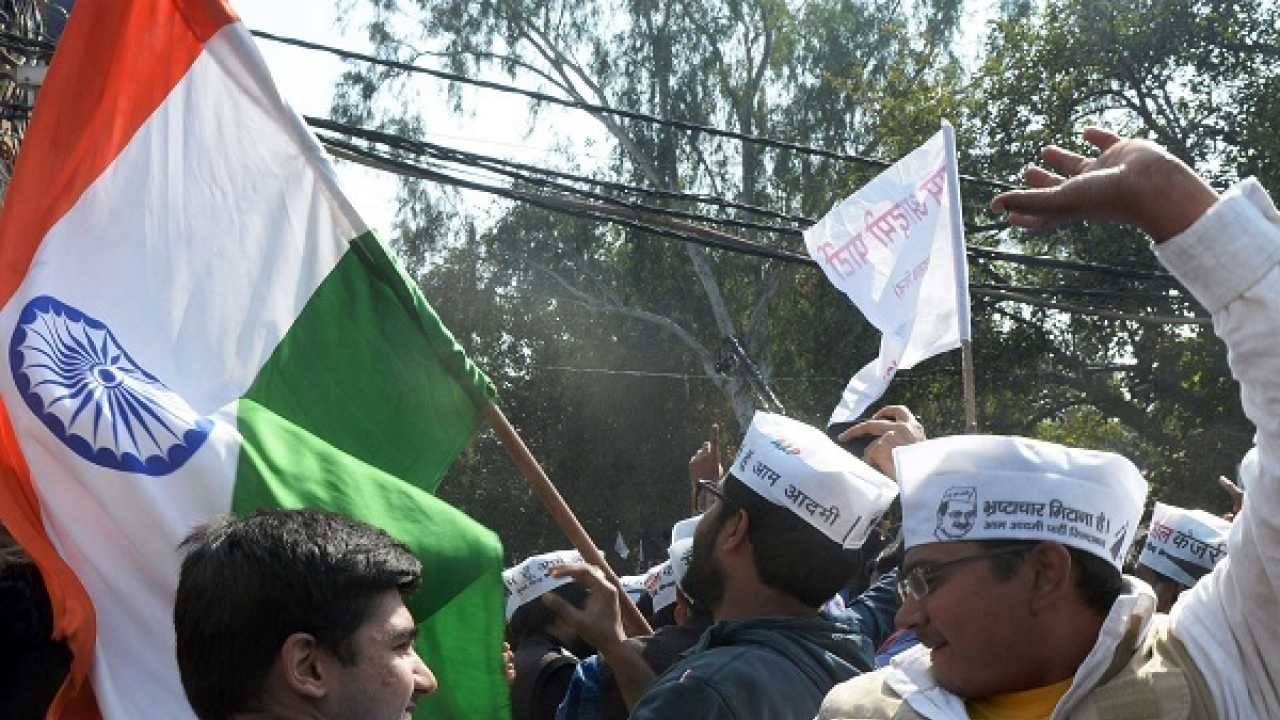
AAP 2.0 emerged on Wednesday. No longer a party based on the guiding principle of being driven by the will of volunteers, the AAP National Executive with clinical accuracy axed founder member Prashant Bhushan and key ideologue Yogendra Yadav from its Political Affairs Committee. So brazen was the culling that they have not even been given an alternate portfolio as of now, even for a face saving purpose. The party, after tasting its first real electoral triumph, seems to have quickly transformed into a hardcore political party.
Most political parties in the country have either emerged out of civil society movements or are offshoots of some strong ideological beliefs. So in a way, the genesis of AAP is not novel. What made it unique is that for the first time, a party was formed out of the anti-corruption movement. For very long time, no one thought corruption 'sells' as an electoral issue in India but thanks to Anna Hazare's movement the perception was shattered. A new hope was ignited among the literate class that here is a party with a difference based on a people's movement with no hierarchy. The party managed to break the glass ceiling by attracting people from across the board. In a way, it became a melting pot of inspired individuals united to change the India story which was tattered with inept babudom and corrupt politicians.
But in just over two years, the high moral ground the party enjoyed of being different has gone south. This entire 'loss of innocence' phase of AAP can be interpreted in several ways. One school of thought says that for spreading AAP's network far and wide, some amount of dilution in core ideologies is almost inevitable. Not every person will be similarly motivated or will have an impenetrable moral compass. From religion to politics, to increase clout, such compromises are inevitable. Parties like Loksatta in Karnataka and PDS in West Bengal have the most lofty ideological standings. But they hardly become forces to reckon with because of the lack of real politicking. But another school of thought is that if AAP compromises on its core ideology, can it even claim to be any different?
The two main criticisms against AAP are of the dilution of ideology and the personality cult. The line between being pragmatic and compromising on the core ideology is extremely blurry. Prashant Bhushan in his interview to NDTV said that in some issues, Arvind is ready to compromise while he is not. The same thing is interpreted in a different way by Ashutosh who tweeted that the ideological fight is between the ultra left and pragmatic politics of welfare. So it's more about a clash of ideals -- for some the means is the goal and for others the goal is the means. But as of now, as the Delhi victory showed, Kejriwal is on the right track, getting support from the cadres and commoners alike.
The personality cult on the other hand, is intrinsic to the DNA of Indian politics. The history of political parties is filled with examples where one supreme leader has led to curbing the wings of others. Even venerable Gandhiji was not immune to this. In the Tripuri Session of the Congress when Subhash Chandra Bose defeated Pattabhi Sitaramayya, Mohandas Gandhi took it as a personal defeat. He is famously rumoured to have said, 'This is my defeat' and a virtual impasse happened in the party. The two never patched up. So even the Congress party has had a personality cult for a very long time, from Tilak and Gandhi to today's disappearing prince Rahul Gandhi. A party like BJP though, based on strong ideological moorings, finally catapulted to success based on Atal Bihari Vajpayee's 'liberal' face. It won 282 seats when Narendra Modi sold his Gujarat model to the neo-middle class. A party like the Left on the other hand, had ideological luminaries in leaders like Harkishan Singh Surjeet, EMS Namboodiripad and Jyoti Basu, but after their demise, it seems to be in a perennial decline.
The regional parties of India have been mostly one leader centric, with almost a cult following in some cases. To give an example of the nature of sameness of political parties, about the same time that the AAP conundrum is going on, the TMC is also going through a similar strife. Mukul Roy, once second in line to Mamata Banerjee, has been stripped of every possible post. It's unlikely to dent TMC's popularity though, as people still vote in the name of Mamata Banerjee. Similarly, the AAP churning is unlikely to impact the party politically. Winnability in Indian politics is often equated with the strength and clout of the leader. Electorates think that if the person is not able to keep his house in order, how will he/she drive the nation forward.
Some activists may leave AAP thinking that it has degraded to any other political party, but a lot more may come in with the entire machinery firmly behind Kejriwal. What it shows is that in the real world of politics, dopey-eyed ideology doesn't work. Those leaders fall aside or 'mature' themselves. Only the pragmatic with a sense of the pulse of the people go ahead. AAP may have taken the first step towards maturity on Wednesday. If you are disheartened with the events, don't blame them, blame the inevitability of Indian politics instead.